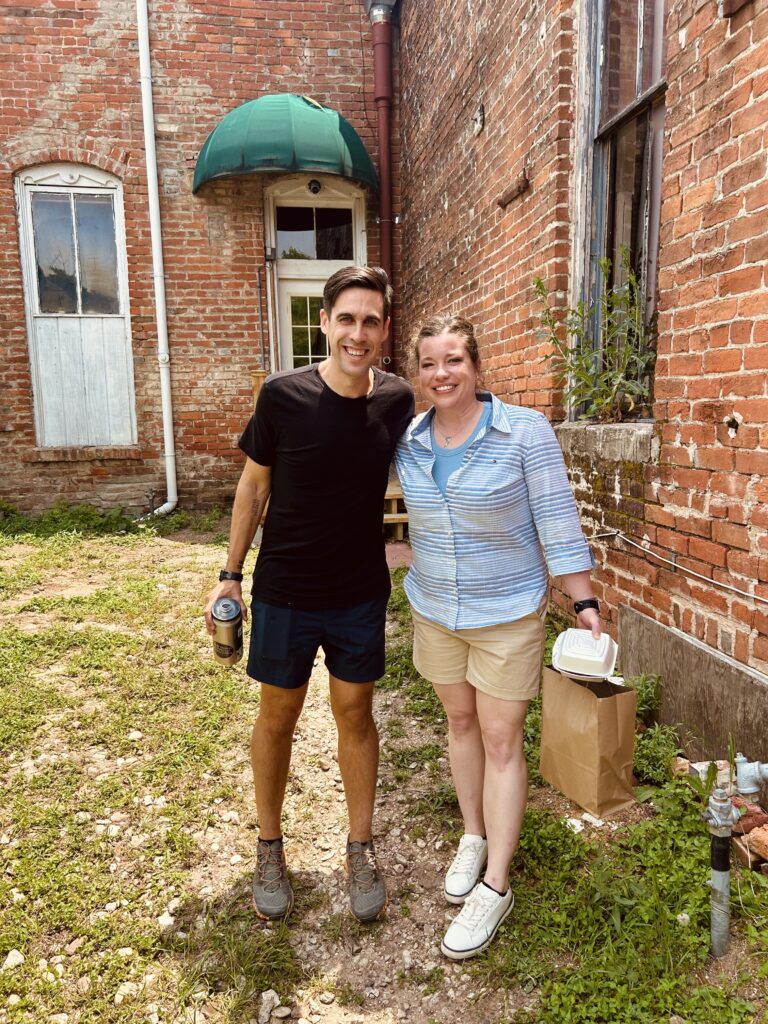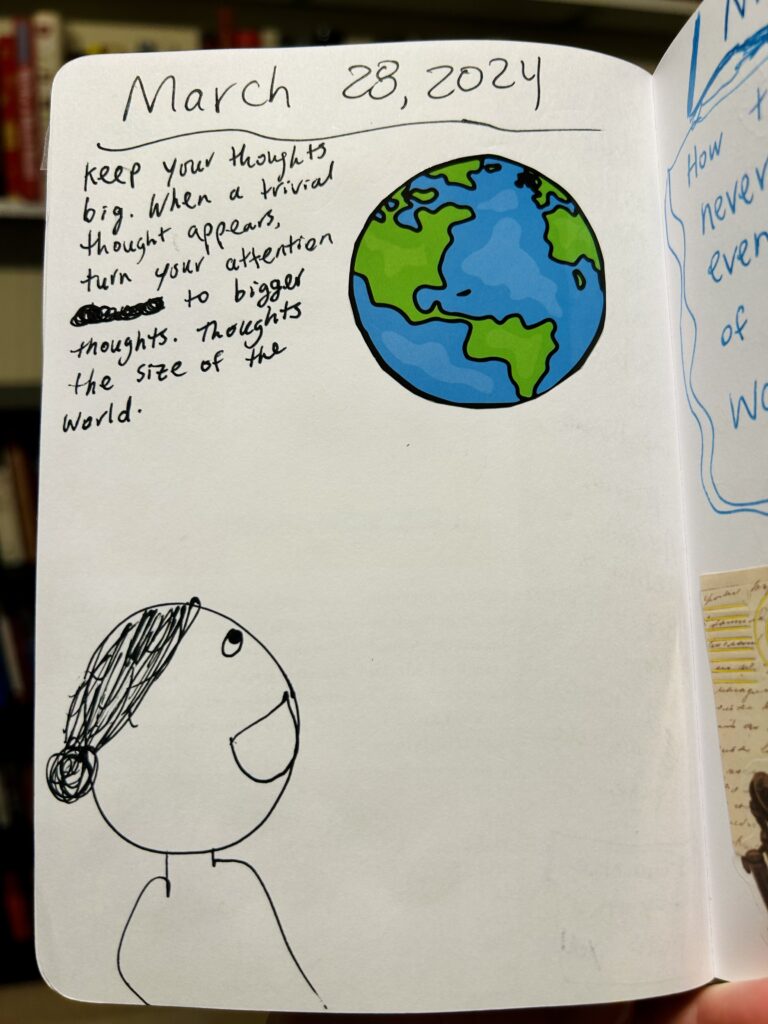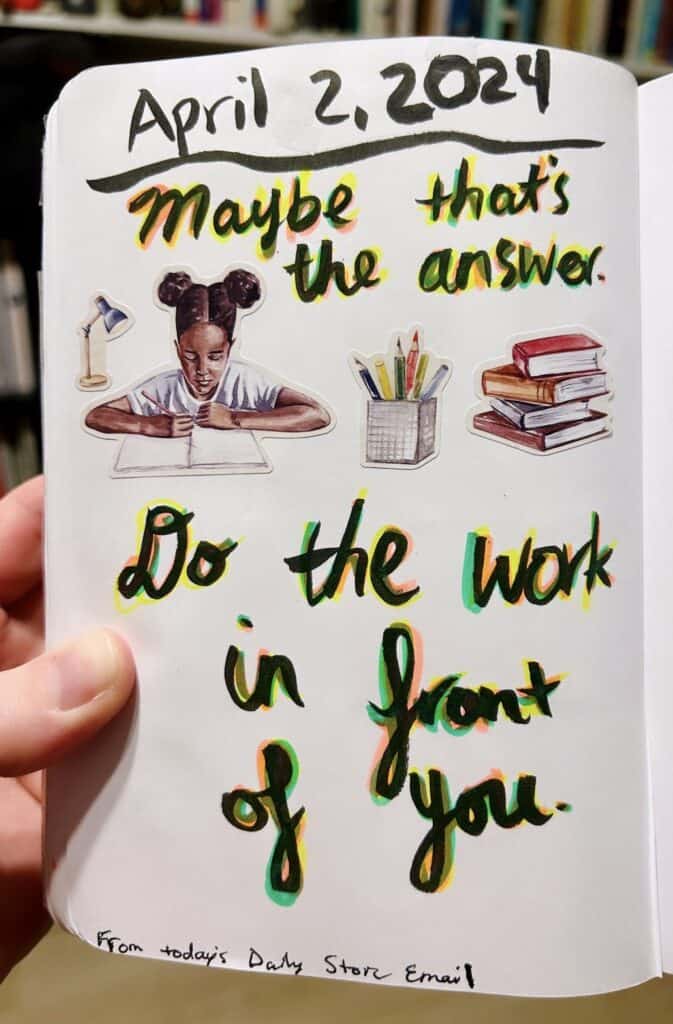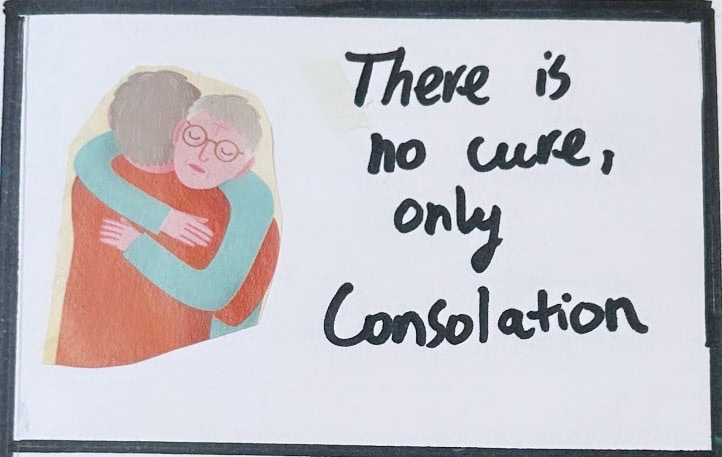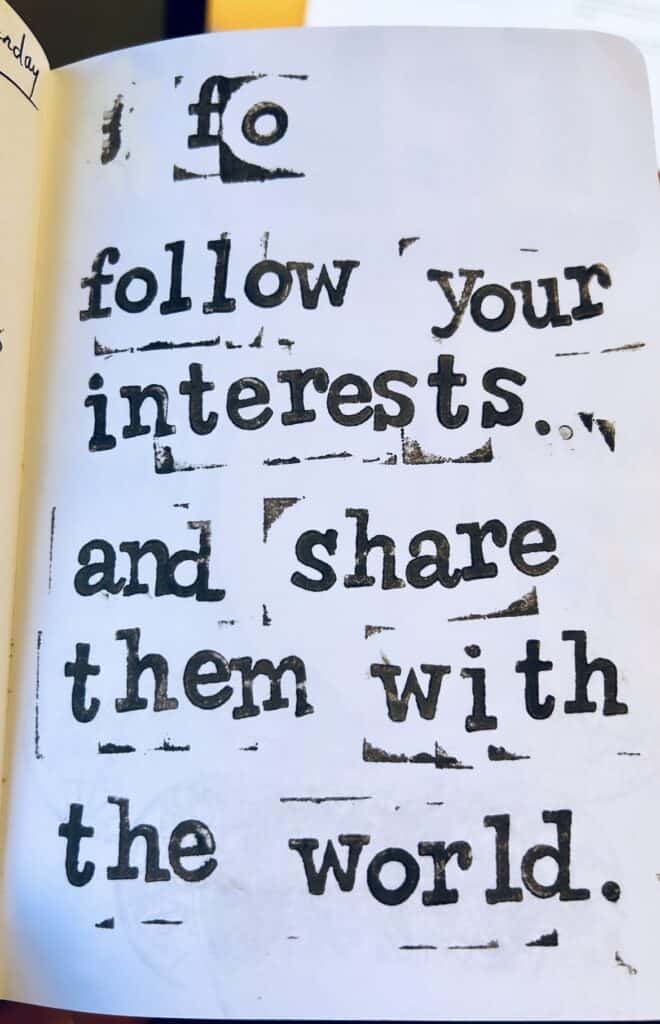This is what all great men and women have in common

Seneca said that wisdom is always wanting the same things and always rejecting the same things.
You don’t even have to add the stipulation that they are the right things. If they are consistent, they are right.
Consistency. I’ve been thinking about this word a lot with the upcoming presidential election. Its polarity has made inconsistencies stand out like tolerance at a MAGA rally. To value your rights but not a transgender person’s…that’s inconsistent. To love your gay friend but look down on Pride celebrations…inconsistent. To claim to support African Americans by protecting “black jobs”…inconsistent.
Our steps will vary, but our path should remain the same. Laws and policies are debatable. Humanity isn’t.
The people who fight for civil rights and women’s rights are the same people who fight for gay rights and transgender rights. They’ll be the same people in the future, fighting for the next minority group that will be attacked once the mob inevitably loses interest in its current targets. And they will lose interest because passions of the day don’t last. Kindness does.
Take Euripides, the ancient Greek playwright. Wildly unpopular and dismissed in his day (what modern mind isn’t?), his plays made people uncomfortable by challenging their long-held prejudices. He wanted them to think. He wanted people to question conventions, as they were often masks for injustice. His love and compassion for people, especially those unlike him—women, the elderly, peasants, slaves—was so deep that the sadness it caused nearly incapacitated him.
What’s interesting, as Edith Hamilton writes in her phenomenalbook The Greek Way(see below!), is that not long after his death, his popularity swung completely in the opposite direction. People were told incredible stories of what a great man he was. (To this day, more of his plays survive than those of Aeschylus and Sophocles combined.)
“Dogmatisms of each age wear out,” Hamilton writes. “The heterodoxy of one generation is the orthodoxy of the next. The ultimate critique of pure reason is that its results do not endure.” Even Euripides’ biting indictments of the social structure were forgotten. What wasn’t forgotten, what people remembered and so loved him for, found solace in him for, was his sympathy for humanity’s pain, his “courage to tear down old wrongs and never give up seeking for new things that should be good.” It was his kindness that outlasted everything.
Kindness. That sturdy thread that runs through the long line of great men and women. Through the people who root for others and watch out for them. The people who are eager to understand, eager to…
Be a benevolent interpreter
In An Emotional Education, Alain de Botton notes how quickly society judges a person’s worth based on their status. If a person falls on hard times, they’re told to pick themselves up; failure means they didn’t try hard enough. People mostly get what they deserve. “Those who are condemned and broken did something wrong; those who succeeded worked hard and were good.” Their status is an indicator of their decency.
But the ancient Greeks saw it differently: You could do all the right things and still fail. This was the idea behind their tragic dramas. Playwrights like Aeschylus, Euripides, and Sophocles wrote of honest, decent people who made an understandable mistake or were victims of chance and were left ruined or put to death. Audiences were thrilled and frightened. If it could happen to him, they realized, it could happen to any of us.
That’s why we must be generous in our interpretations of others, give them the benefit of the doubt. We’re all doing the best we can with what we have.
This thinking, Alan de Botton says, is an exercise in being kind, yes. But it’s also a way of getting to the truth. Two things which, “when you dive deep into psychology, might be the same thing.”
Lift them up
There was one theme running through Rosanne Cash’s eulogy for her stepmother, June: her kindness.
“In her eyes, there were two kinds of people in the world: those she knew and loved, and those she didn’t know and loved. She looked for the best in everyone; it was a way of life for her. If you pointed out that a particular person was perhaps not totally deserving of her love, and might in fact be somewhat of a lout, she would say, ‘Well, honey, we just have to lift him up.’ She was forever lifting people up. . . . She saw into all your dark corners and deep recesses, saw your potential and possible future, and the gifts you didn’t even know you possessed, and she ‘lifted it up’ for you to see. She did it for all of us, daily, continuously.”
Fight hate with love
On her way home from school each day, Totto-Chan (whose full name is Tetsuko Kuroyanagi and is one of the most famous talk-show personalities in Japan) would walk by the tenements where Koreans lived. She didn’t know they were Korean, of course, as she was in the first grade. One day, a boy from another school named Masao-chan, who was maybe a year older than her, was standing on top of an embankment. With his hands on his hips and feet apart in an arrogant stance, he shouted at Totto-chan, “Korean!” His voice was full of hatred.
When she got home, she told her mother about it. “Masao-chan called me a Korean,” she said. Her mother put her hand over her mouth. Tears spilled down her cheeks, and her nose reddened. “Poor child,” she said. “People must call him ‘Korean! Korean!’ so often that he thinks it’s a nasty word.” He’s too young to understand, she continued. He probably thinks they are calling him a fool. And because it is said to him so often, he wanted to say something nasty to someone else. “How can people be so cruel?”
Wiping her tears, her mother calmly said to Totto-chan, “You’re Japanese and Masao-chan comes from a country called Korea. But he’s a child, just like you. So, Totto-chan, dear, don’t ever think of people as different. Don’t think, ‘That person’s a Japanese, or this person’s a Korean.’ Be nice to Masao-chan. It’s so sad that some people think other people aren’t nice just because they’re Korean.”
Totto-chan didn’t fully understand, but she did understand that people were mean to Masao-chan for no reason. She decided that if he called her ‘Korean’ again, she would reply, “We’re all children! We’re all the same.” Then, she would try to make him her friend.
Be fair
In his beautiful book Right Thing, Right Now, Ryan Holiday tells the story of famed lawyer Clarence Darrow. Late in his life, needing money, he agreed to do a speaking tour around the country debating other speakers onstage. His contract was $500 per event and $50 for expenses. After the first event, Darrow learned that the promoter made only $150 after costs and fees. Darrow was aghast at the unfairness of it. He gave his $50 expense money to the promoter and another $100 from his own check. Even later, when the profits had risen, Darrow kept his speaking fee to the original agreed on price. His partner explained, in admiration, “Mr. Darrow always leaned over backward to give men the best part of the deal.”
“At the end of our lives,” Ryan writes in the afterword, “we won’t care that much if people think we were hardworking or that the risks we’ve taken in our careers have paid off. We’ll want someone to say, ‘That was a good person. They were honest and decent and generous and loyal and kind. They made the world a better place.’”
Books Read This Month:
–Left of Bang by Patrick Van Horne and Jason A. Riley is a good supplement to The Gift of Fear, which, as I’ve said, reads in part like a thriller and is one of my favorite books. I think everyone, women especially, should read it. A favorite takeaway: be wary of unsolicited promises. Anyway, Left of Bang is also about spotting signs of potential danger. I mostly skimmed the more military-oriented chapters, but the stuff about people and how surprisingly predictable they are is fascinating and potentially life-saving.
–The Greek Way by Edith Hamilton is SO good. Oh my goodness, it’s phenomenal. (The pile of notes I’ve taken is almost an inch thick.) The ancient Greeks were the pinnacle of human excellence. The way they thought and the art they produced “has never been surpassed and very rarely equaled, and the stamp of it is upon all the art and all the thought of the Western world.” The Greeks LOVED life. They loved work, and they loved play. They loved leisure, which they used for intellectual pursuits. They were sociable. They thought for themselves. They found truth in both the rational and the spiritual, science and poetry. (A radical notion even today.) The mind and spirit were one. They were wise but not reclusive, lovers of wisdom with the charisma and vigor of a high school football captain. Seriously, this book is a masterpiece.
-I randomly came across The Art of Memoir by Mary Karr while browsing at Changing Hands Bookstore this month and was surprised I’d never heard of it. I blazed through it and got loads of good stuff on what makes a story—specifically a memoir, one of my favorite genres—work.
-I loved This Boy’s Life by Tobias Wolff. He shares his experience growing up with his free-spirited mother and his unpredictable, emotionally abusive stepfather. From reading Mary Karr’s The Art of Memoir, I noticed specific reasons why this memoir works so well: One, Wolff’s adolescent voice is so distinct we don’t question it’s him talking to us. (Similar to Scout in To Kill a Mockingbird). Two, he doesn’t tell us only the bad things his stepfather did. That would put us to sleep. What drives the story are the moments of hope mixed in, the times his stepfather was nice to him. And three, he endears himself to us with his candid telling of his shameful and embarrassing moments. Such a good read and one of my favorite memoirs.
-I usually plan which books I’ll read next, but I pulled Creativity Sucks by Phil Hansen off my shelf randomly during a break from writing. Thirty minutes later, I was still standing there reading. It’s an easy read about balancing the demands of daily life with creativity. What’s interesting is that I almost quit reading it a few times. Not because I wasn’t enjoying it, but because I thought I should be reading something…denser? But then I remembered (because the day before, I had read some of my journals from 2013) that a relatively light book played a part in where I am today. Had it not been for Jeffrey Gitomer’s The Little Black Book of Connections that I bought (with my mom’s credit card because I had no money) on a whim at the O’Hare airport, there’s a good chance I might never have started talking with Courtney. It’s a long story but my point is that if you’re getting something from a book, keep reading it. Anyway, one of my biggest takeaways was Hansen’s method for creating on demand, systematically. How else can we create consistently? I also loved his idea of separating the mental work from the physical. The mental work can be done during your commute, washing dishes, etc. That way, when you get to your desk, you can spend your time physically creating. Highly recommend!

